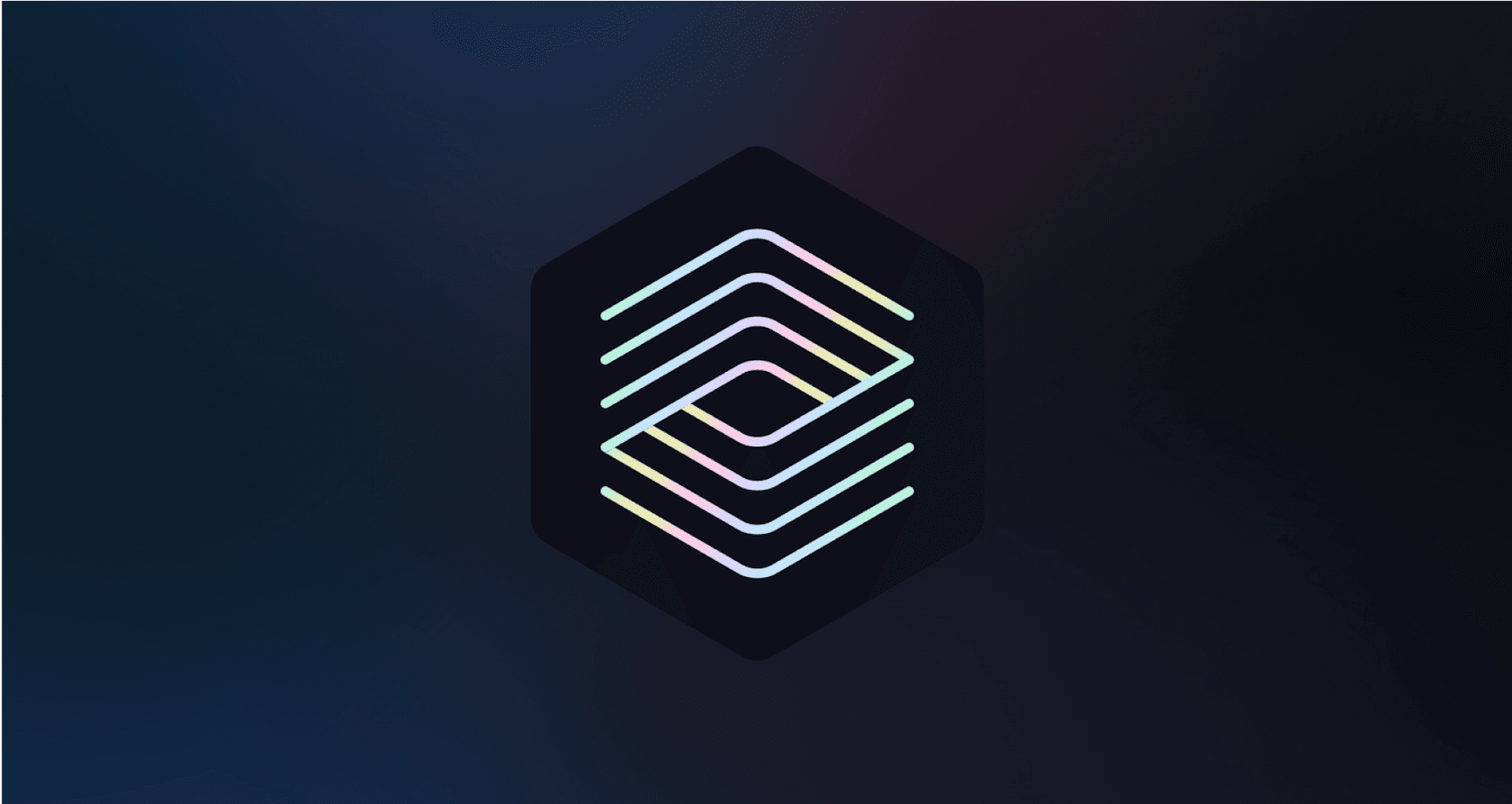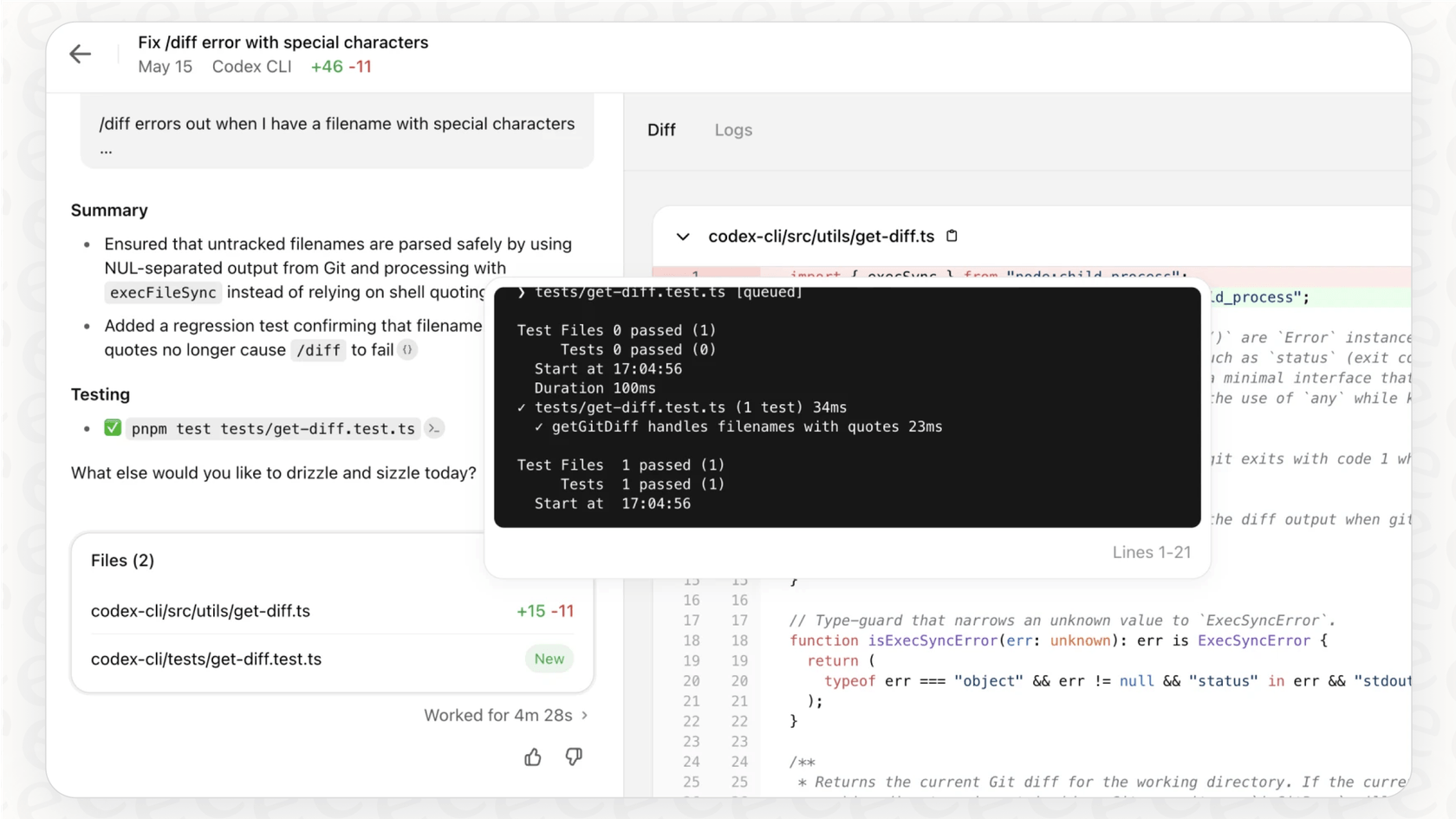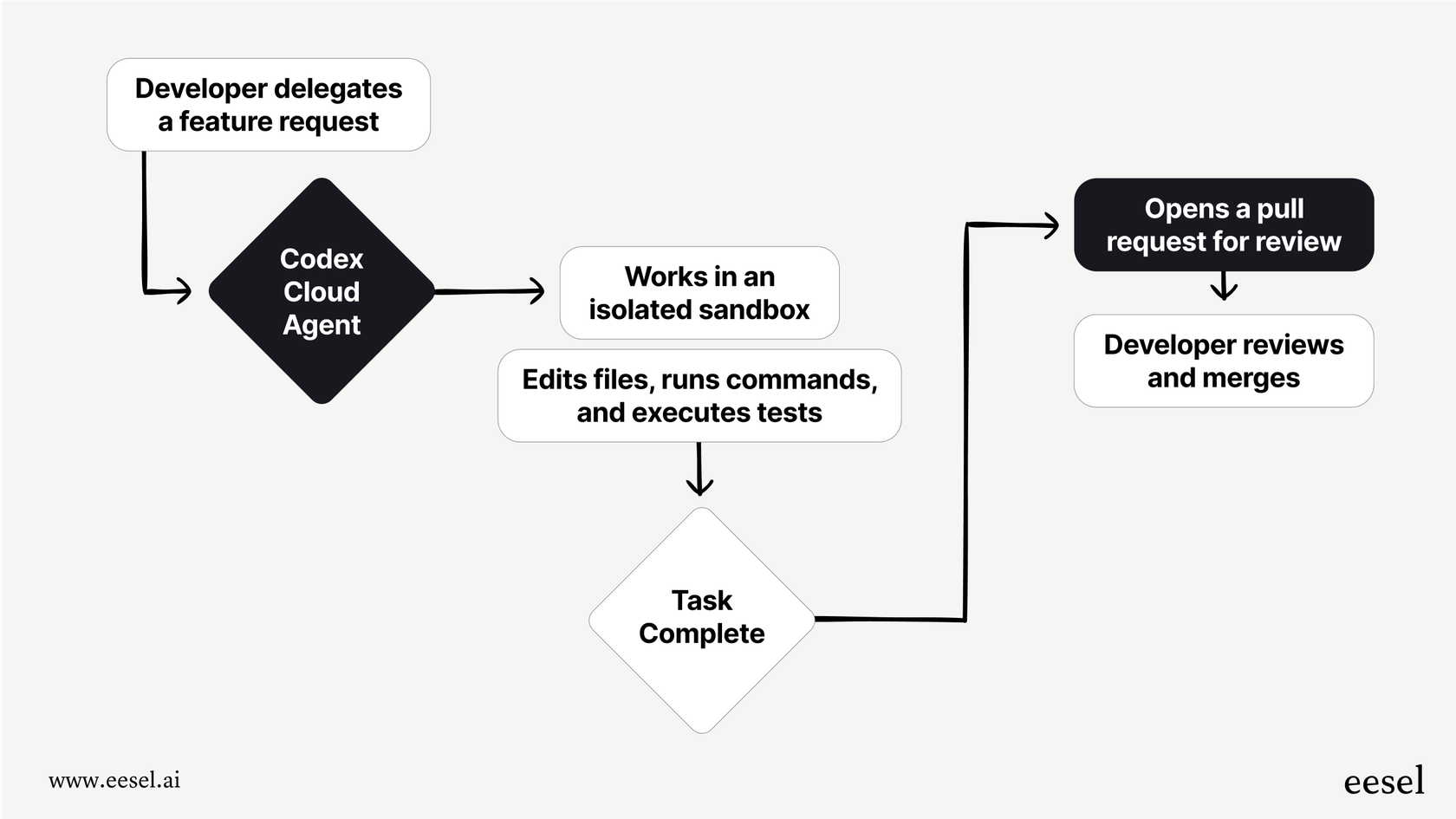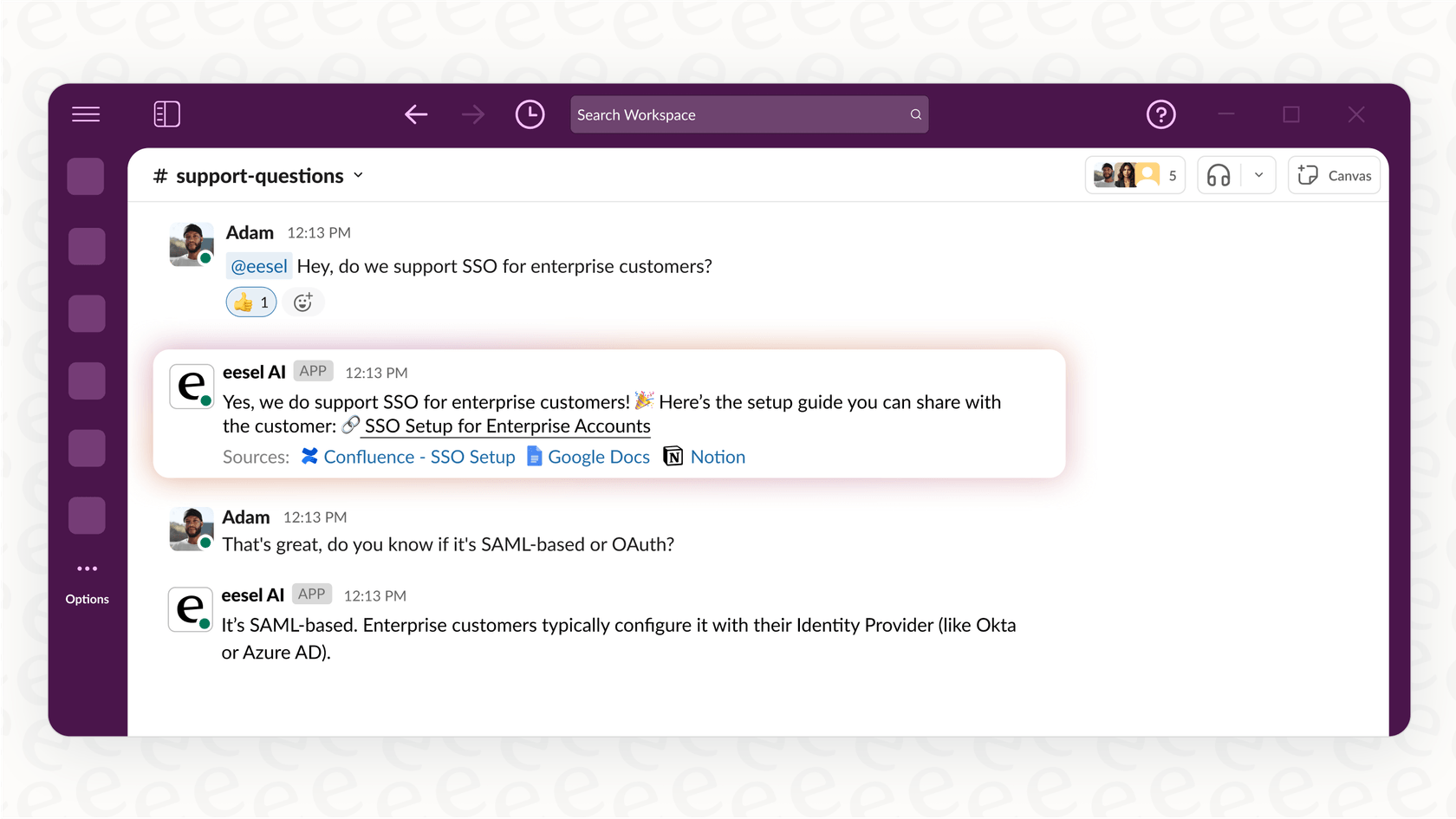
Bringing AI assistants into everyday tools like Slack is all the rage right now. And for good reason, when it works, it’s like giving your team a superpower. You can automate boring tasks and get answers right where you're already talking.
One of the most talked-about options for technical teams is plugging OpenAI's Codex into Slack. The promise is a powerful coding assistant that lives inside your team channels.
But what does that actually mean day-to-day? This guide will walk you through everything you should know about the OpenAI Codex integrations with Slack. We’ll cover what it is, how it actually works, what it might cost you, and its biggest drawbacks, especially if you’re not an engineer.
What is OpenAI Codex?
You might know OpenAI Codex as the AI model that powers GitHub Copilot. At its core, it’s designed to translate natural language into code. Think of it as an AI pair programmer that can help developers write code, squash bugs, and map out new ideas faster.

Codex is part of the larger ChatGPT ecosystem, so you can use it through a few different interfaces, like an IDE extension or a web app. Access comes bundled with paid ChatGPT subscriptions (Plus, Pro, and Business), so it's pretty accessible if you already have an account.
What is Slack?
For millions of teams, Slack is the digital office. It's more than just a chat app; it's the central hub where conversations happen and work gets done. Over the years, Slack has opened up to thousands of app integrations, letting teams connect all their tools in one place.
Lately, the big push has been to bring AI assistants directly into the Slack workspace. The idea is simple: instead of jumping to another app to find information, you just ask a bot right in the channel where you're already working.
How OpenAI Codex integrations with Slack actually work
Here's the thing: getting Codex running in Slack isn't a one-click install. The setup process is pretty involved and clearly built for a technical user, which tells you a lot about who it's for.
Setting up OpenAI Codex integrations with Slack
Before you can start pinging @Codex with tasks, you’ll need to roll up your sleeves. The setup requires both a paid ChatGPT account and a GitHub account. Here’s a quick look at the steps:
-
Flip on Cloud Tasks: First, you have to dig into your ChatGPT settings and enable Cloud Tasks.
-
Connect to GitHub: The integration needs to link to your GitHub account and repositories. This is where Codex will actually do its work.
-
Configure a Cloud Environment: You’ll need to set up a specific cloud environment that gives Codex a safe space to access and work with your codebase.
-
Install the Slack App: With all the backend stuff done, you can finally install the Codex app into your Slack workspace.
-
Invite
@Codex: The last step is to add the bot to a channel so you can start using it.
Just looking at that workflow, it's obvious this integration is made for engineering teams. It's not something your marketing or HR colleague could set up on their own.
Key features and use cases for developers
Once it's all set up, using it is pretty straightforward. A developer can mention @Codex in a Slack thread, give it a prompt, and the AI will get to work. According to the official documentation, the main use cases are all about code:
-
Answering technical questions: Codex can look at the conversation's context and spit out a code-based answer.
-
Fixing bugs: If someone describes a bug in a thread, you can tag Codex and ask it to write a fix.
-
Exploring ideas: You can ask Codex to scaffold a new feature or brainstorm a few different ways to tackle a technical problem.
The bot is smart enough to pull context from the conversation, pick the right code repository, and get started. When it's finished, it drops a link to its work in the thread for review. For a developer, it can be a neat way to get things moving without breaking their flow.

Limitations and potential challenges
While it's a cool tool for its niche, the Codex integration has some major limitations that make it a poor choice for general business use.
First, and this is the big one, it's only for developers. It thinks and breathes code. It can't tell you about your company's PTO policy, find the latest marketing report, or check on a customer support ticket. Its entire world is the GitHub repositories it's connected to.
Second, it can get lost in the conversation. In long or messy Slack threads, even OpenAI notes that Codex might miss important details. This forces you to manually summarize the key points in your prompt, which adds friction and makes it less reliable.
Finally, you don't have much control over it. The AI automatically decides which environment to work in based on what it thinks the conversation is about. If the context is a bit vague, it could pick the wrong one, wasting time and effort. That's not exactly ideal for the kind of predictable, reliable help most business teams need.
Understanding the real cost
The pricing is where things get a bit murky. For most businesses, a tool loses its appeal fast if the costs are all over the place, and that’s a real possibility with the Codex integration.
How usage is billed
While your ChatGPT subscription gives you access to Codex, using it through Slack can cost you extra. OpenAI's announcement clarifies that the cloud tasks triggered by the Slack integration chew through usage credits on Business and Enterprise plans. So, you're not just paying your monthly subscription; you're also paying for every single task the AI runs.
This usage-based model has already caused some head-scratching.
The challenge of unpredictable costs
For a controlled dev environment, maybe you can manage pay-as-you-go pricing. But for any kind of business support, it's a huge financial risk. The number of questions your IT help desk or HR team gets can swing wildly from month to month. If your budget is tied to a per-use model, one busy month could blow your budget out of the water.
This is a completely different world from platforms built for support, which focus on predictable costs. For instance, a solution like eesel AI offers straightforward plans based on a set number of AI interactions. You know exactly what you’re paying, which lets you scale your support with confidence instead of sweating over a surprise invoice.

What about everyone else? AI for broader team support in Slack
Codex is a solid tool for what it does: helping developers with code. But most questions inside a company aren't about code. What about everyone in sales, marketing, HR, or customer support? They need answers from totally different places.
The gap: Where OpenAI Codex falls short for non-technical teams
Codex can't connect to your help desk in Zendesk, pull from your company wiki in Confluence, or find a policy doc in Google Docs. This leaves your entire non-technical staff stuck with the old way of doing things: digging through folders and bothering colleagues for answers.
A better approach: One AI for all your company knowledge
A truly helpful internal AI needs to be the brain for the whole company, not just one department. It should be able to learn from all the places your company knowledge is scattered, past support tickets, internal wikis, HR policies, and shared drives.
This is where a dedicated AI support platform really makes sense. Instead of being locked into a single function like coding, it connects all your different knowledge sources to create one source of truth for every employee, right inside Slack.
Introducing eesel AI: The self-serve AI agent for your entire workspace
That’s the exact problem we built eesel AI to solve. It lets you build a smart, knowledgeable AI assistant for Slack that helps your whole company, and you can get it running in minutes, not months.
Here’s how eesel AI fills the gaps left by a developer-focused tool like Codex:
-
Go live in minutes: Forget the complicated, multi-step headache of setting up Codex. eesel AI is built to be self-serve. You can connect your knowledge sources and launch an internal chatbot without writing any code or waiting for a developer.
-
Connects to everything: eesel AI integrates with over 100 sources, including the help desks, wikis, and document platforms you already use. It pulls all that knowledge together to provide a single, reliable source of truth.
-
You're in control: You get precise control over what the AI can and can't answer. You can easily tell it which knowledge sources to use for different types of questions, ensuring it stays on-topic and gives accurate answers every time.
-
Clear, simple pricing: With eesel AI, you get predictable monthly or annual plans based on a set number of interactions. No per-resolution fees, no confusing usage credits. Budgeting is simple and you always know what to expect.

| Feature | OpenAI Codex in Slack | eesel AI for Slack |
|---|---|---|
| Main Job | AI-assisted coding for developers | Internal Q&A for all teams |
| Knowledge Sources | GitHub repositories | 100+ integrations (Confluence, Google Docs, Zendesk, etc.) |
| Setup | Technical, multi-step process | Self-serve, live in minutes |
| Pricing | Subscription + unpredictable usage costs | Predictable monthly/annual plans |
| Who it's for | Software Developers | All employees (Support, IT, HR, Sales) |
This video provides an overview of how OpenAI Codex can be used across different platforms, including its integration with Slack.
Picking the right AI for your workspace
OpenAI Codex is a powerful tool that brings a coding assistant into Slack for engineering teams. For that specific, technical job, it's an interesting piece of tech.
But its laser focus on developers, complicated setup, and unpredictable pricing make it a non-starter for broader business support. When you need to give your entire organization fast, reliable answers in Slack, a purpose-built platform is the way to go.
Ready to bring real AI-powered support to your Slack workspace?
Don't settle for a tool that only helps one department. eesel AI connects to all your company knowledge to provide instant, accurate answers for everyone.
Start your free trial today and build your first AI agent in minutes.
Frequently asked questions
The setup for OpenAI Codex integrations with Slack is quite technical and multi-stepped. It requires enabling Cloud Tasks in ChatGPT, connecting to GitHub, configuring a specific cloud environment, and then installing the Slack app.
OpenAI Codex integrations with Slack are primarily designed for engineering teams and developers. Its main use cases revolve around coding tasks like answering technical questions, fixing bugs, and exploring code ideas.
While a ChatGPT subscription provides access to Codex, its usage through OpenAI Codex integrations with Slack on Business and Enterprise plans consumes additional usage credits. This can lead to unpredictable pay-as-you-go costs beyond the monthly subscription fee.
No, OpenAI Codex integrations with Slack are strictly for developers and code-related tasks. It cannot connect to general business knowledge sources like HR policies or marketing reports, making it unsuitable for non-technical teams.
Yes, in long or complex Slack threads, OpenAI Codex integrations with Slack might struggle to pick up important details, potentially leading to inaccurate outputs. Users may need to manually summarize context to ensure the AI understands the prompt correctly.
Users have limited control, as the AI automatically decides which environment to work in based on its interpretation of the conversation context. If the context is vague, it could potentially pick the wrong one, wasting time and effort.
Share this post

Article by
Stevia Putri
Stevia Putri is a marketing generalist at eesel AI, where she helps turn powerful AI tools into stories that resonate. She’s driven by curiosity, clarity, and the human side of technology.




